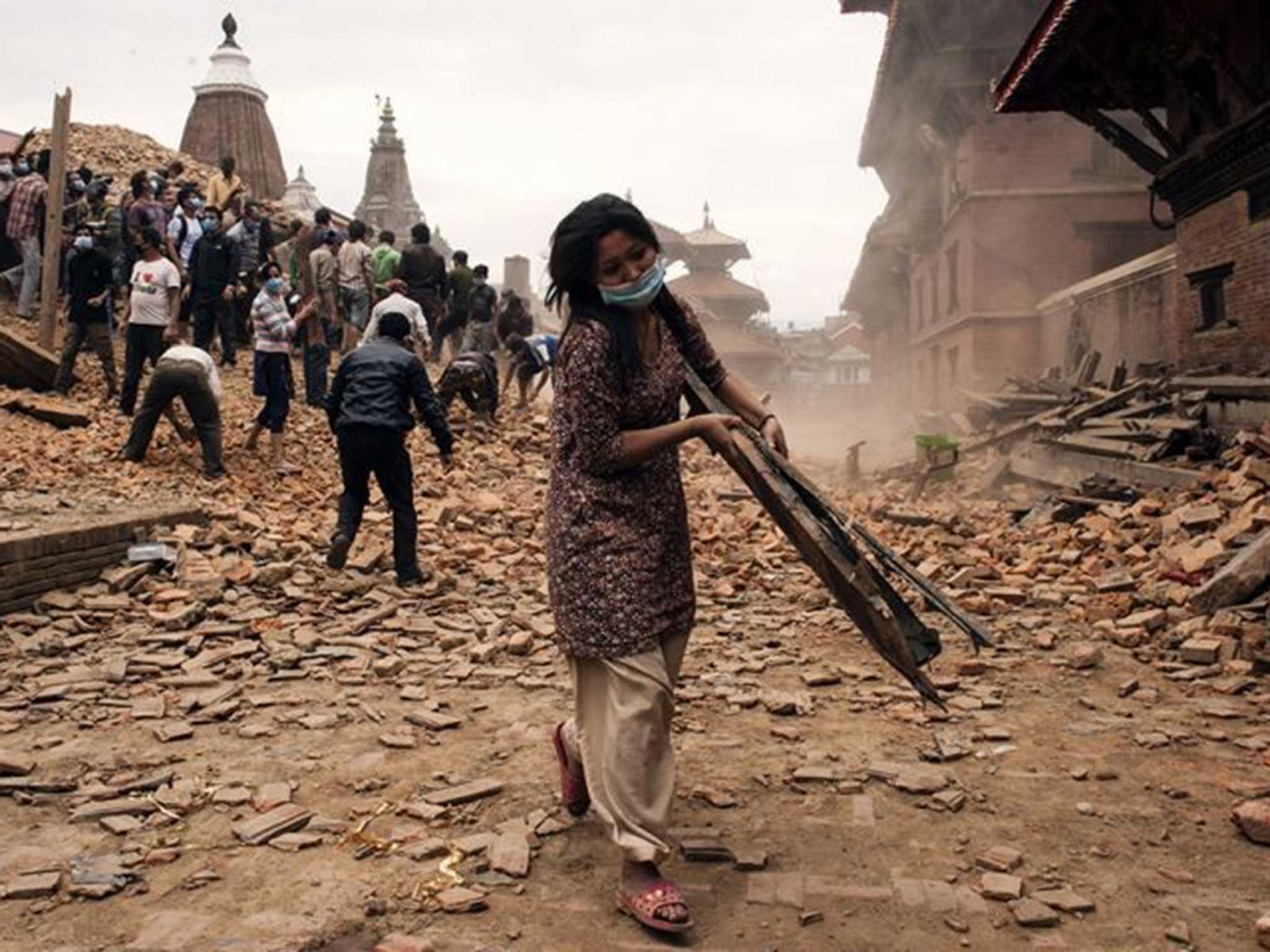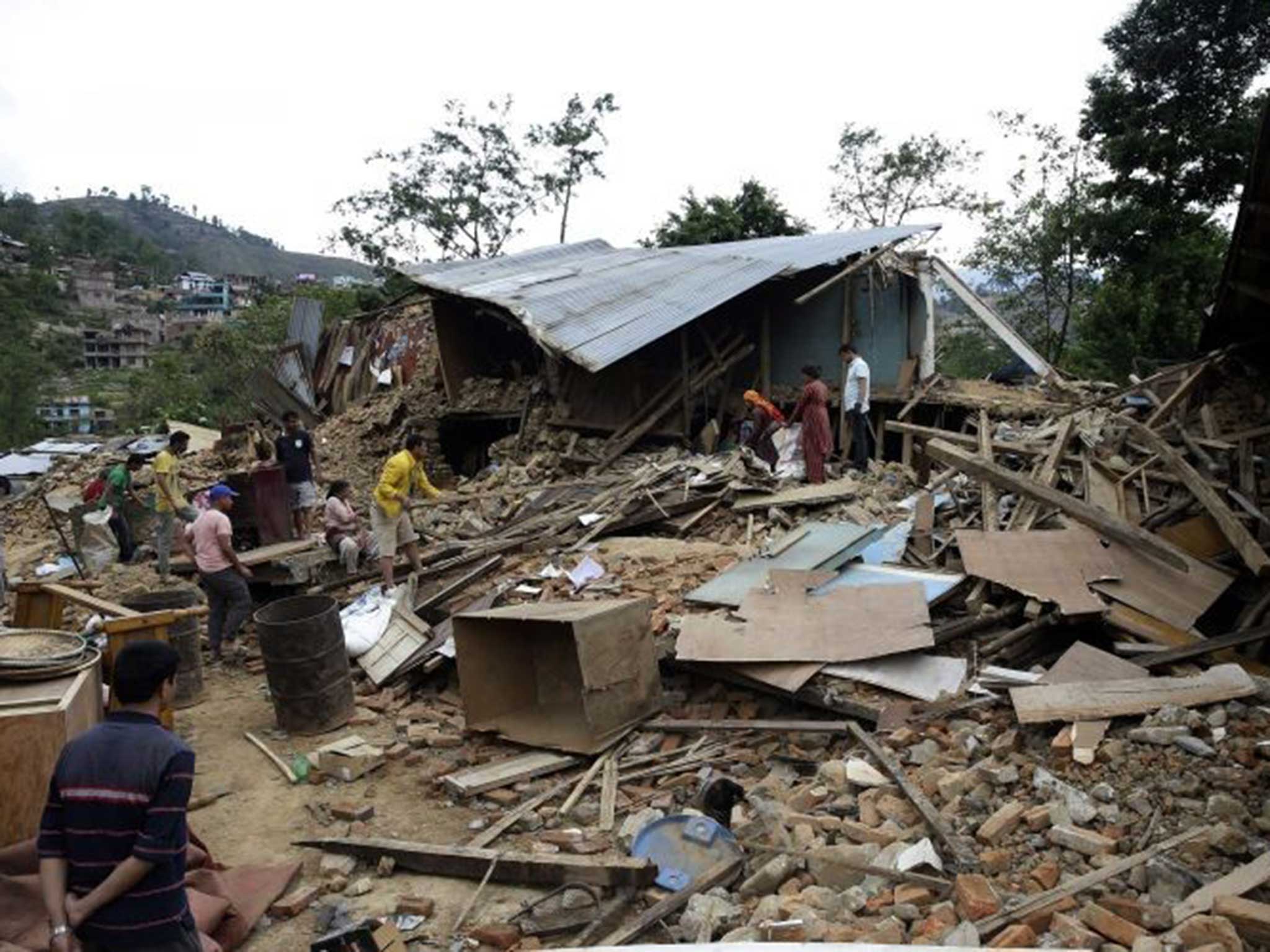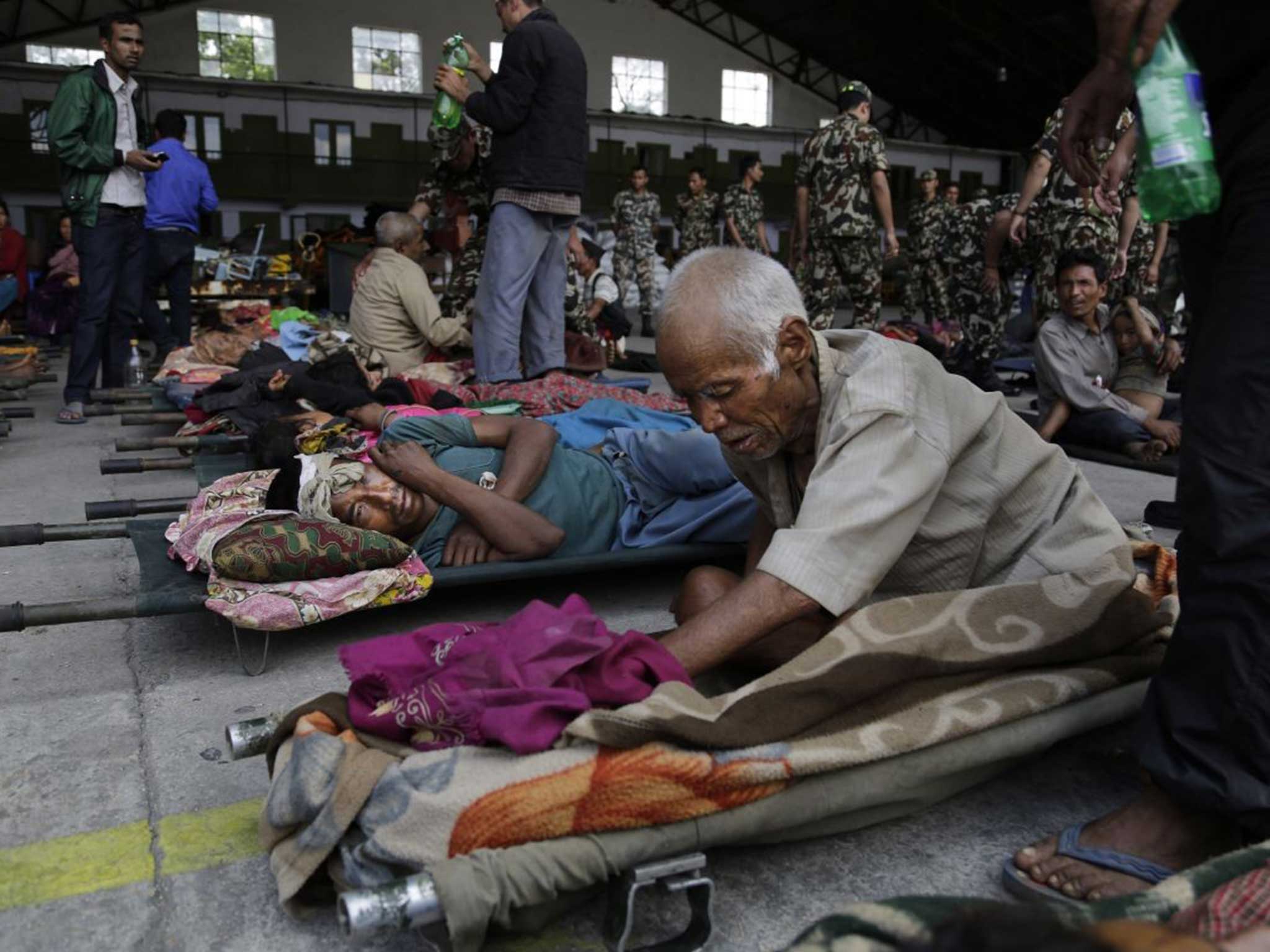Nepal earthquake: 'No one from the government has come to offer us even a glass of water' says survivor as anger mounts
More than 3,700 people are estimated to have died and more than 6,000 have been injured

Your support helps us to tell the story
From reproductive rights to climate change to Big Tech, The Independent is on the ground when the story is developing. Whether it's investigating the financials of Elon Musk's pro-Trump PAC or producing our latest documentary, 'The A Word', which shines a light on the American women fighting for reproductive rights, we know how important it is to parse out the facts from the messaging.
At such a critical moment in US history, we need reporters on the ground. Your donation allows us to keep sending journalists to speak to both sides of the story.
The Independent is trusted by Americans across the entire political spectrum. And unlike many other quality news outlets, we choose not to lock Americans out of our reporting and analysis with paywalls. We believe quality journalism should be available to everyone, paid for by those who can afford it.
Your support makes all the difference."No one from the government has come to offer us even a glass of water," one victim of Nepal’s worst earthquake in 80 years said as anger against her government grew.
The mountainous and poorly developed nation was struck by a 7.8 scale earthquake on Saturday, devastating much of the country and necessitating a huge international aid effort.
An estimated 3,726 people have been killed, although these numbers are in constant revision - with latest forecast indicating as many as 4,000 - and roughly 6,000 injured.

Two days following the quake, and with aftershocks still terrorising many, anger is growing in the capital city Kathmandu over the government’s perceived inability to care for its own desperate citizens.
“We have become refugees," Sarga Dhaoubadel, a management student whose ancestors had built her Bhaktapur family home over 400 years ago, told Reuters. She added: "No one from the government has come to offer us even a glass of water”.
Many survivors are sleeping in the open – too fearful to return to their homes. Others have taken to sleeping in sewage pipes, meant for reconstruction, according to the Nepal Times.
Aside from shelter, survivors report that medicine, power, and clean drinking water were absent as they struggled on Monday.
The sporadic power, limited clean water and access to sanitation has sparked fears of disease.
"It's not at the panic stage yet, but it's starting to get that way,” Philip Ewert, operations director for World Vision told NBC news.
His organisation has been the only – so far – to reach the epicentre of the quake in Gorkha Province, although information surrounding the dead and injured in that region remains scare.
Udav Prashad Timalsina, the top official for the district, warned of dire shortages. “There are people who are not getting food and shelter. I've had reports of villages where 70 percent of the houses have been destroyed," he said.

His calls were echoed by Oxfam country director in Nepal Cecilia Keizer, who said the number of dead is “continuing to rise”.
She added: “people need immediate access to adequate safe water, and sanitation facilities and food assistance."
Even as relief begins to trickle in, a backlog at Kathmandu airport caused hold-ups as the small airport is crippled by congestion.
An Indian air force delegation carrying aid supplies and rescue personnel was forced to turn back earlier today.
India, China, Pakistan and many European nations – including the UK – have all offered Nepal both financial and practical aid in the past two days.
Additional reporting by Reuters and Associated Press
Join our commenting forum
Join thought-provoking conversations, follow other Independent readers and see their replies
Comments